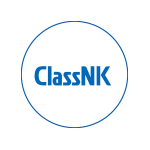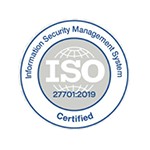Types of Ship Hardware and Equipment Suppliers
Types of Ship Hardware and Equipment Suppliers
Original Equipment Manufacturers (OEMs): These are the companies that design, manufacture, and sell the original equipment used in ships. They provide equipment such as engines, generators, propulsion systems, and navigation systems.
Unlocking Efficiency and Performance: The Power of Ship Hardware in Maritime Operations
Ship hardware ensures optimal performance, safety, and efficiency in the maritime industry. From propulsion systems to navigation equipment, these hardware components are the backbone of vessel operations. At NOZZLE, we specialize in software solutions that streamline ship management processes and maximize operational efficiency. While ship hardware is vital, it's important to note that NOZZLE focuses solely on software services and does not provide hardware-related solutions.
NOZZLE's expertise lies in developing cutting-edge software solutions specifically designed to address the complex challenges faced by maritime companies. Our software empowers vessel owners and operators to streamline maintenance, optimize fuel consumption, manage crew, and ensure compliance with industry regulations. By harnessing the power of data analytics and automation, our software enables data-driven decision-making and operational excellence.
Are you looking for a Software Solutions for Vessels?
+90 850 520 0259
We are committed to continuously improving our software based on valuable customer feedback. We actively seek and incorporate feedback from our clients to enhance the user experience and address their evolving needs. We release new software versions containing valuable insights and improvements every two months. This iterative development process allows us to stay at the forefront of industry requirements and provide our clients with the most up-to-date and effective software solutions.
It's essential to highlight that NOZZLE does not offer vessel hardware services. Instead, we collaborate closely with trusted partners specializing in ship hardware to ensure that our clients have access to the latest and most reliable technologies. By integrating our software seamlessly with clients' existing ship hardware systems, we create a comprehensive and efficient solution that drives success in maritime operations.
In conclusion, NOZZLE is a software-focused company dedicated to providing innovative solutions for ship management. While we recognize the importance of ship hardware, we do not offer hardware-related services. Our software complements the power of ship hardware by providing intelligent digital tools for data analysis, predictive maintenance, and decision-making. Contact us today to learn how NOZZLE's software solutions, constantly updated based on customer feedback, can transform your maritime operations.
Aftermarket Suppliers: Aftermarket suppliers provide replacement parts and components for ships. They offer items such as pumps, valves, filters, and bearings.
Electrical Equipment Suppliers: These suppliers provide electrical equipment and systems for ships, such as lighting, cables, switchboards, and communication systems.
Safety Equipment Suppliers: Safety equipment suppliers provide equipment such as life rafts, life jackets, fire extinguishers, and emergency signaling devices.
Deck Equipment Suppliers: These suppliers provide equipment for the deck of a ship, such as cranes, winches, and anchors.
HVAC (Heating, Ventilation, and Air Conditioning) Equipment Suppliers: HVAC equipment suppliers provide equipment and systems for maintaining the climate and air quality inside a ship.
Water Treatment Equipment Suppliers: These suppliers provide equipment for treating water on board a ship, such as desalination plants, water filtration systems, and water softeners.
Fuel Equipment Suppliers: Fuel equipment suppliers provide equipment for storing, transferring, and treating fuel on board a ship.
Navigation Equipment Suppliers: Navigation equipment suppliers provide equipment such as radars, GPS systems, and chart plotters for navigation and positioning.
Communication Equipment Suppliers: Communication equipment suppliers provide equipment for ship-to-ship and ship-to-shore communication, such as radios, satellite phones, and internet connectivity systems.
What Are Ship Hardware And Equipment Suppliers?
Ship hardware and equipment suppliers are companies that design, manufacture, and supply hardware and equipment used in the construction, operation, and maintenance of ships. They provide a wide range of equipment, including engines, propulsion systems, navigation equipment, safety equipment, electrical equipment, deck equipment, HVAC systems, water treatment equipment, fuel equipment, and communication equipment.
These suppliers work closely with shipyards, ship owners, and operators to provide high-quality, reliable, and durable equipment that meets the unique requirements of the maritime industry. They must adhere to strict safety and environmental regulations and standards and often operate on a global scale to serve customers in different regions around the world.
Factors To Consider When Choosing A Ship Hardware And Equipment Supplier
When choosing a ship hardware and equipment supplier, there are several factors to consider, including:
Quality: It is essential to select a supplier that provides high-quality equipment that is reliable and durable. The quality of the equipment can impact the safety, efficiency, and overall performance of the ship.
Cost: Cost is a significant consideration when selecting a supplier. It is essential to choose a supplier that offers competitive pricing while still providing high-quality equipment and services.
Availability: Availability is critical when selecting a supplier. It is important to choose a supplier that can deliver the equipment and parts needed in a timely and efficient manner to avoid delays or downtime.
Customer Service: Customer service is an important factor to consider when selecting a supplier. The supplier should be responsive, helpful, and knowledgeable, and should provide excellent after-sales support.
Technical Expertise: Technical expertise is critical when selecting a supplier. The supplier should have a thorough understanding of the equipment and systems needed for the ship and should be able to provide technical support, training, and troubleshooting when necessary.
Reputation: The supplier's reputation is an important consideration. It is essential to select a supplier with a good track record of providing quality equipment and services to their customers.
Compliance: Compliance with regulations and standards is critical when selecting a supplier. The supplier should adhere to industry standards and regulations, such as safety and environmental regulations, to ensure compliance and avoid potential legal or regulatory issues.
Challenges Faced By Ship Hardware And Equipment Suppliers
Ship hardware and equipment suppliers face several challenges, including:
Global Supply Chain Issues: Ship hardware and equipment suppliers often source materials and components from different countries, which can lead to challenges in logistics, transportation, and customs clearance.
Regulatory Compliance: Suppliers must comply with various regulations and standards related to safety, environmental protection, and quality assurance, which can add complexity and cost to their operations.
Intense Competition: The ship hardware and equipment market is highly competitive, and suppliers must constantly innovate and differentiate themselves to stay ahead of their competitors.
Price Volatility: The price of raw materials and components used in ship hardware and equipment can be volatile, which can impact the profitability of suppliers.
Technical Complexity: Ship hardware and equipment is often highly technical and specialized, which can make it challenging for suppliers to stay up-to-date with the latest technology and design trends.
Fluctuating Demand: The demand for ship hardware and equipment can be cyclical and subject to market fluctuations, which can create uncertainty and risk for suppliers.
Long Lead Times: The design, development, and manufacture of ship hardware and equipment can be complex and time-consuming, with long lead times, which can impact a supplier's ability to respond quickly to changing market conditions or customer needs.
Certificates & Class Type Approvals
Privacy Verified & Quality Validated in NOZZLE

Class Type Approval
by DNV

Class Type Approval
by CLASS NK

Information Security
Management

